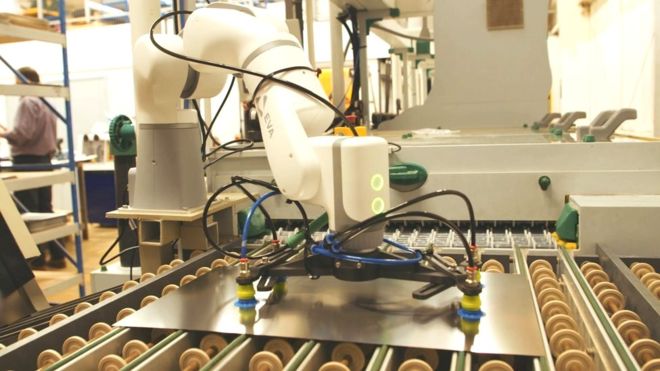
You hear EVA before you see it. A whirring and whizzing noise greets you as you enter the offices of Automata, a start-up robotics company based in London.
To one side a robotic arm is going through an intricate set of moves: six joints twisting and turning in a sequence which, in the real world, would place a label on a parcel.
That’s EVA, and it has being doing those moves non-stop for months to test its reliability.
Around the office and workshop there are more than a dozen other EVA units, some being dismantled by the engineers, others awaiting testing.
It must be very eerie at night as EVA continues its work, simulating attaching labels, while surrounded by its silent clones.
This robotic arm emerged from the work of former architect Suryansh Chandra and his business partner Mostafa Elsayed.
“We started out with the intention to democratise robotics, to make automation accessible and affordable to as many people as needed it,” says Mr Chandra.
They are betting that there are thousands, if not millions, of smaller businesses which need repetitive tasks completed, but can’t afford a big industrial robot.
So EVA was developed from cheap reliable parts. It uses the same motors that power the electric windows in cars, while the computer chips are similar to those used in the consumer electronics business. This is allowing them to sell EVA at £8,000.
“If I was to give you an analogy, this was a world where there were a lot of luxury cars. Everything was fast, powerful and precise, but there was no Toyota. There was no people’s car,” Mr Chandra says.
Automata is just one firm trying to find a wider market for robots and disrupt the way that things are made.
More than 2.4 million industrial robots are operating in factories around the world, according to data from the International Federation of Robotics (IFR), which is forecasting double-digit sales growth from 2020 to 2022.
The majority of robots currently do repetitive work in large factories, producing cars, electronics and metal. These giant industrial arms have long been powerful and accurate, but have lacked adaptability.

